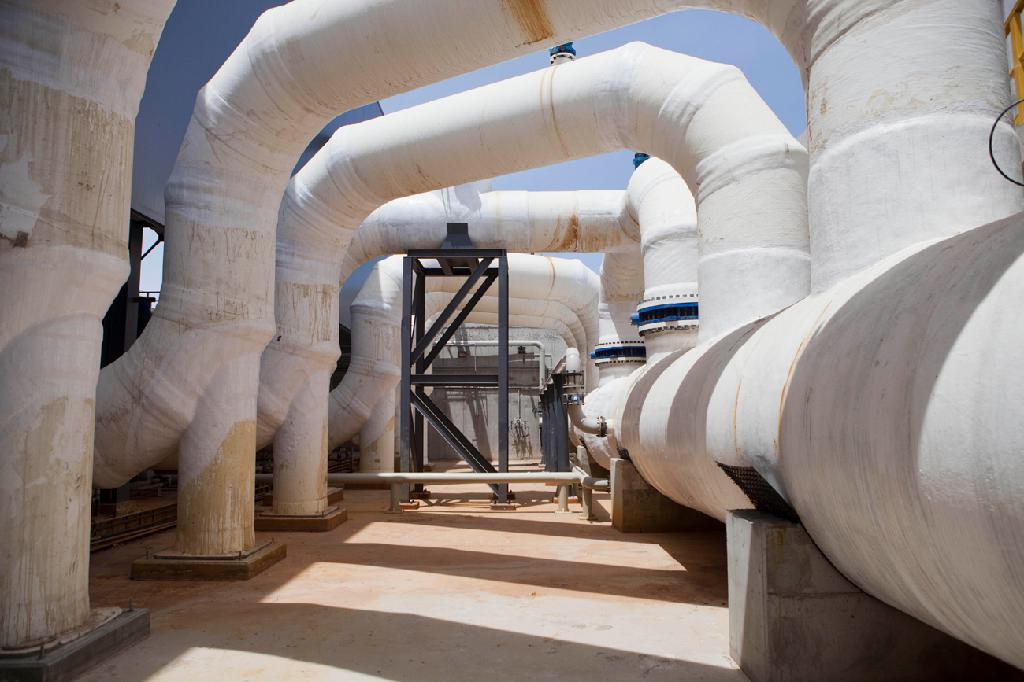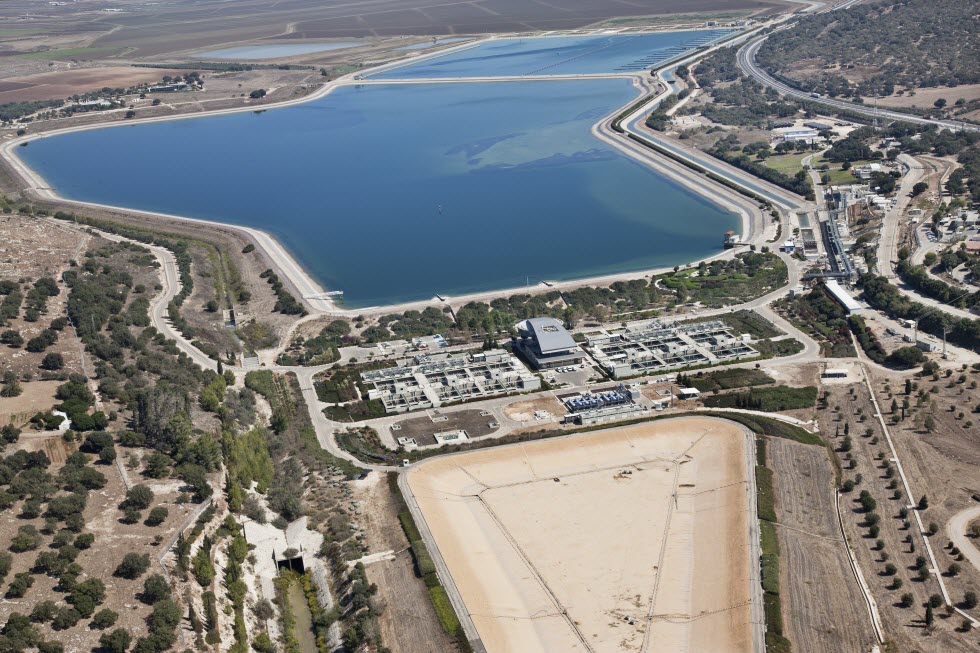Getting your Trinity Audio player ready...
Promotional content in cooperation with Mekorot
Last June, the British magazine GWI rated the countries with the best water sector in the world.
Among the criteria which were putting to test were the quality of the water and the regulation in the business, the availability of fresh water per capita, the amount of research and development and the scope of export of knowledge to the world.
Israel was ranked on the very respectful fourth place on the list, after the Netherlands, Australia and Singapore (the latter was ranked first).
The high ranking on the list was encouraging, but not surprising given the fact that even though and despite the serious shortage of water in our historically dry area, even before the country was founded, Israel invested in development and allocating resources and technologies concerning water.
2 View gallery


Together with startups and other companies, Mekorot develops multiple defense layers to prevent cyber attacks. The desalination facility in Sorek
(Photo: AP)
The company responsible for the significant step up over the last few years, the one that put Israel high on the global ranking, is the Israeli national water company, Mekorot, which invests heavily in development of technologies and in smart water management.
“We have more than 80 years of experience in the water sector, and what is unique about us is the fact that we integrate several fields. There are not a lot of companies which do this globally,” says Moti Shiri, the CTO of Mekorot.
“Mekorot is a fertile ground for performing experiments in all areas, which is a great advantage. We make conversions mainly from the medical and defense industries. For example, optic cables which measure noises, pressure and temperature, and Mekorot will use it for measuring water and pipe leakage.”
In recent years, the digital revolution swept the water infrastructure sector, albeit with some delay. In this case too, Israel is one of the leading countries.
“The technology helps us saving resources and energy. Today, most water systems works in an almost fully automatic way. It leads to a very efficient energy usage. The systems know when and how to operate. We can get notification about water leakage, for example. These savings roll straight to the consumer, because the efficiency is higher and the cost of water is lower,” says Shiri.
Mekorot made another meaningful step forward last year, with the launch of a government program and a goal of increasing the extent of development in the water sector. Following the government rollout, Mekorot established an innovation unit to operate on three channels: investment in startups, innovation within the company and research.
“The program means that we invest money in startups, implement the technology in Mekorot and help the startup companies getting into international markets,” says Dudi Balsar, General Manager Innovation and Ventures at Mekorot.
“Startups have an opportunity to work with a leading strategic body of knowledge in the water field. And for us, we implement the technology, improve it and adjust it to the needs of the water sector.”
One of the Israeli tech companies that received an investment of 2.5$ million from Mekorot is IXDen, one of the leading companies in the cyber industry.
The company developed an algorithm that helps operating the digital systems of Mekorot. The algorithm identifies unusual behavior in the IoT elements and protects from cyber-attacks against these elements.
“We have 3,000 water facilities around the country. In each one of them there are sensors, which are like small computers transferring information and operating the systems,” says Mekorot CTO Shiri.
“We discovered that sometimes the sensors transfer wrong information. The IXDen system is connected to the sensors, it identifies mathematical anomalies and examine the sensors.”
About 30 million bits of data are created each day in Mekorot, he says.
“The IXDen system checks the status of the equipment and examines whether the sensors transfer correct information such as pressures, temperatures, supply etc. With the help of this system, we can bring Mekorot to a higher level," Shiri says.
"This saves up to 10% of the energy consumption. In the future the savings will be higher. We will be able to know when is there going to be a failure, and we will know how to fix malfunctions in the right and predictable way. It will prevent malfunctions which are creating water outages and serious incidents.”
How would a cyber-attack can affect water infrastructure, and what do you do to protect the system?
Shiri: “Like every other computerized system that is installed on each device nowadays, a cyber-attack can endanger the systems and run them in the wrong way. In order to protect its systems, Mekorot - in cooperation with startups and other companies - develops multiple layers of defense for preventing the attacks, including systems that monitor any changes in the system. A cyber-attack never ends and it has to be changed and improved continuously. The IXDen system is essentially a combination of two things - it also transfers the right information to a controller, and provides protection against cyber-attacks.”
Cyber-attacks are becoming increasingly sophisticated at a very fast pace. Is it possible that the best defense for today won't be efficient tomorrow?
Balsar: “We implement cyber solutions on all layers of our systems. All of the architecture of the cyber is multi-layered and tight. The defense is in all layers, from the smart enumerator to the controllers and the SCADA managing system. The defense is hermetically in a sense that if someone wants to create meaningful damage to the system, they need to pass along a lot of stations. We work with the great minds of the Shin Bet security service and Military Intelligence and with all the leading companies in the cyber field. Eventually it is a combination of all the startup nation and all of the defense organizations."
Promotional content in cooperation with Mekorot


